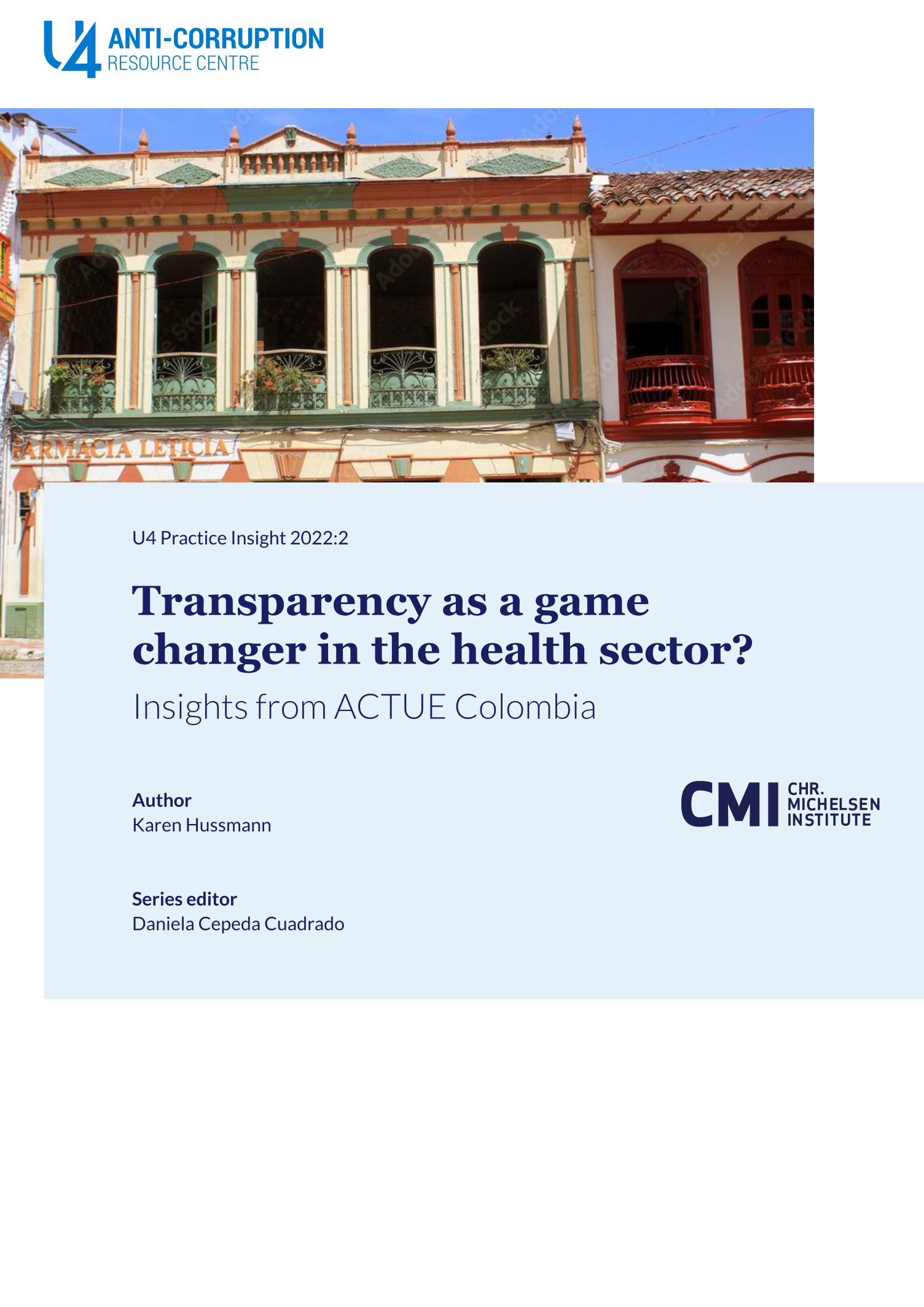Main points
- The Colombian health sector has long been plagued by allegations of corruption, with a crisis in 2011 that shattered trust in the system.
- The ACTUE Colombia project, funded by the European Union, supported a set of transparency and integrity measures intended to improve sector performance and rebuild public trust.
- Focused initially on the pharmaceutical subsector, the project broadened to include an ‘island of integrity’ in Invima, the food and drug oversight agency; subnational health sector transparency initiatives; and a diagnosis of corruption risks and levels of tolerance towards corruption in the health sector.
- A change of national government coincided with closure of the project, creating challenges for sustainability of the initiatives.
- The experience showed that ‘radical’ transparency is necessary but not sufficient. Transparency must be complemented by a set of mutually reinforcing integrity and accountability measures to achieve transformative change.
- Coordination is crucial. The Ministry of Health should install a durable, high-level coordination mechanism at sector and institutional levels to ensure synergies between multiple integrity initiatives and to break down ‘silos’ so that these measures have real impact.
- The time horizon of development projects matters. Donors should ensure that the lifespan of an anti-corruption project transcends the term of a single government.



